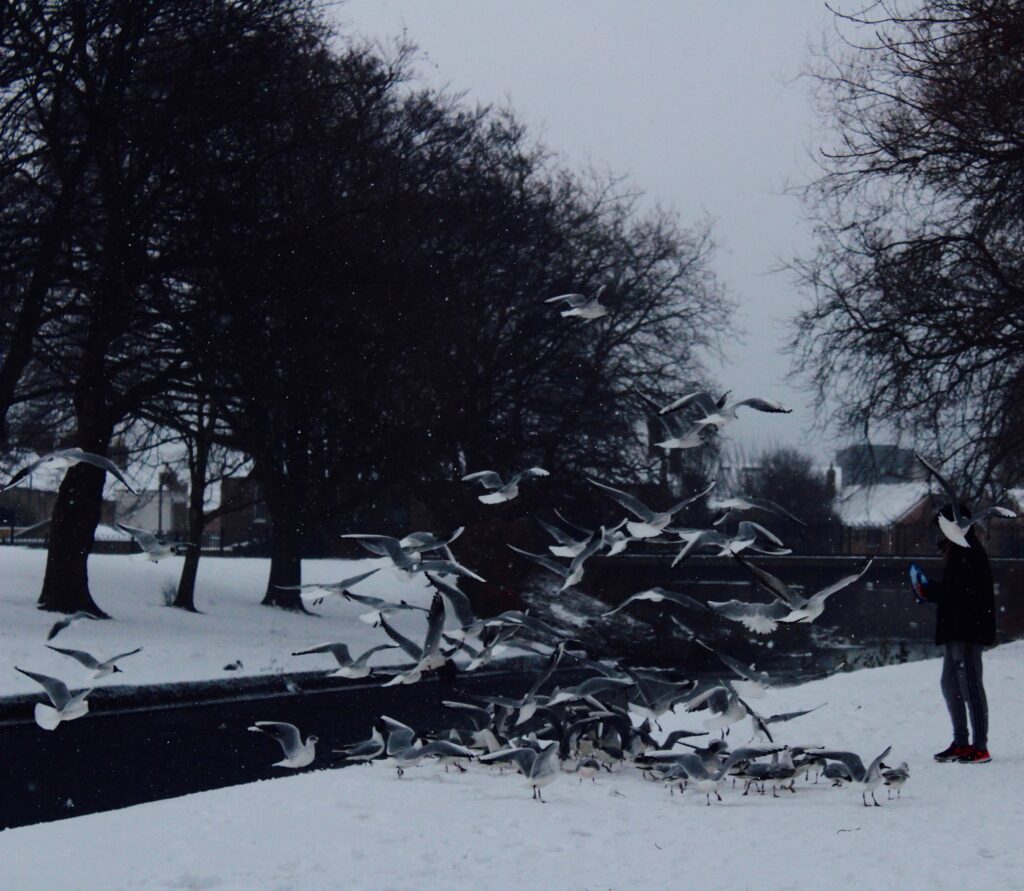
by Catherine Hearn
In late September, as the days grew cold and the evenings closed in, I met two friends for a drink. Not in person, of course. Their faces, grainy and pixelated, filled up my laptop screen. Although it was my umpteenth Zoom of the week, I didn’t feel fatigued or weary. I was giddy with excitement. This was the first weekly meeting of what would become Tolka, our new Arts Council-funded journal for literary non-fiction.
In the weeks that followed that auspicious Zoom call, we went back and forth on structure, editorial processes, finances and ironing out details, only to change our minds moments later. We submitted our Arts Council application, labouring over each line, never expecting to be successful. Ten weeks later, the confirmation email appeared in my inbox. More than joy and relief, the overwhelming feeling was one of validation. We felt like we were supposed to be doing this – that we were onto something good.
These feelings have continued. Every writer, publisher and bookseller we’ve reached out to for advice has responded with grace, generosity and some formulation of ‘This is such a great idea!’ So, what is the idea? What is Tolka? Tolka is a new literary journal specialising in non-fiction, essays, reportage, auto-fiction and the writing that flows in between. We are a journal for writers to express themselves beyond the limits of fixed genres, forms or subjects – mapping the ways through which language, stories and the self can be continuously rendered anew.

A large part of our motivation for beginning this project stemmed from the extraordinary range of recent Irish literature that has found innovative and profound ways to explore forms of personhood. Authors such as Claire-Louise Bennett, Brain Dillon, Sinéad Gleeson, Mark O’Connell, Melatu Uche Okorie, Doireann Ní Ghríofa and Rob Doyle epitomise the diversity of writing that is extending the creative and critical possibilities of non-fiction, auto-fiction and the essay. Lauren Elkin has written of the ‘liberating’ capacities of auto-fiction, emphasising how you can ‘be straightforward, write like you speak, leave the question of genre open and ambiguous’. Although sometimes criticised as navel-gazing or rigid, we see this kind of self-reflexive writing as the opposite – as a shifting constellation of feeling and intimations, an examination of the self that translates into a more empathetic and nuanced examination of the world. As Sinéad Gleeson writes, this generous form of literature allows us to consider our bodies and social fabrics as ‘a map, a tracing of connections and a guide to looking at things from different angles’.
Tolka opened for submissions on Wednesday 20 January; this window will close on 10 February. We’ve already received many wonderful submissions and we’re so enjoying delving into the internal worlds of potential contributors. We plan to publish the first issue of Tolka in May and hope to have it on sale in independent bookshops nationwide.
You might ask why Tolka is called Tolka . . . It’s for reasons of proximity, I suppose, as much as etymology. I live in Drumcondra now and I pass the river daily on my sad, little lockdown walks. The word comes from the Irish tolga, meaning to overflow or to flood. That felt right, too. We welcome the flood, the overflow of writing that perhaps doesn’t belong in more traditional, more rigid settings. By providing a platform dedicated to expansive forms of writing, we’re establishing a home for new voices, unfamiliar discourse and unsatisfactory conclusions. And lastly, it just sounds so lovely: T-O-L-K-A.
Tolka is edited by Catherine Hearn, Sean Hayes and Liam Harrison. If you are interested in submitting your work to Tolka, please visit tolkajournal.org.
If you are a bookseller interested in stocking Tolka, please contact Catherine Hearn at catherine@tolkajournal.org.











